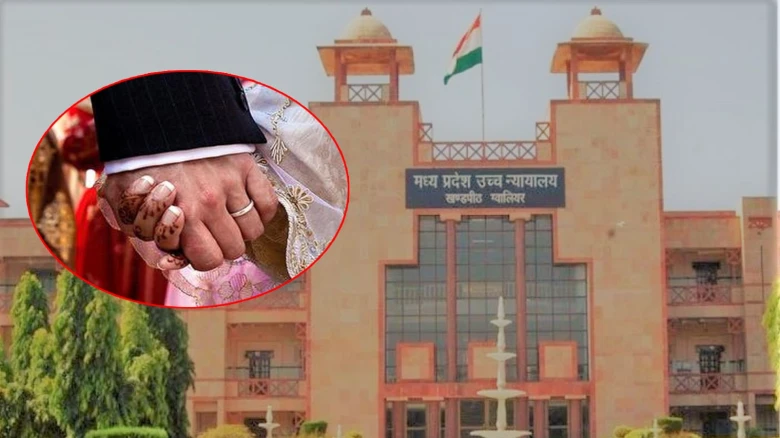This decision came in the case where the couple sought police protection to register their marriage under the Special Marriage Act...
Digital Desk: The Madhya Pradesh High Court recently ruled that a marriage between a Muslim man and a Hindu woman is not valid under Muslim personal law, even if registered under the Special Marriage Act, of 1954. This decision came in the case where the couple sought police protection to register their marriage under the Special Marriage Act but faced opposition from the woman's family and societal pressures.
Justice Gurpal Singh Ahluwalia presided over the case, noting that according to Muslim personal law, a marriage between a Muslim man and a Hindu woman would be considered "irregular" or "fasid." The court's stance was grounded in the principles of Mahomedan law, which traditionally does not recognize the validity of a marriage between a Muslim and a non-Muslim idolatress or fire-worshipper.
The couple involved in the case, a Muslim man and a Hindu woman, faced significant familial and societal challenges. The woman's family opposed the relationship, fearing social ostracism, and accused her of taking jewelry from their home before leaving to marry her partner. Despite these issues, the couple was determined to marry under the Special Marriage Act without converting to each other's religion.
The counsel for the couple argued that the Special Marriage Act, which allows inter-religious marriages without the requirement for religious conversion, should take precedence over personal laws. However, the high court disagreed, emphasizing that the Special Marriage Act cannot legalize a union that is inherently prohibited by personal laws. According to Section 4 of the Special Marriage Act, the parties must not be within a prohibited relationship for the marriage to be valid.
Justice Ahluwalia's ruling highlighted the complexities of reconciling personal laws with secular marriage laws in India. The court pointed out that the petitioners were not willing to change their respective religions or to engage in a live-in relationship. Therefore, the court found no grounds for interference in the case.
The decision underscores the ongoing tension between India's personal laws, which govern family matters for different religious communities and the secular laws aimed at facilitating inter-faith marriages. While the Special Marriage Act is designed to provide a legal framework for inter-religious unions, this ruling reveals the limitations and conflicts that arise when such marriages contradict religious doctrines.
This case reflects broader societal challenges in India, where inter-faith marriages often face resistance from families and communities. The ruling reaffirms the necessity for parties in inter-faith marriages to navigate both legal and personal law frameworks carefully, and it raises questions about the harmonization of religious laws with secular statutes in a diverse society.

Leave A Comment